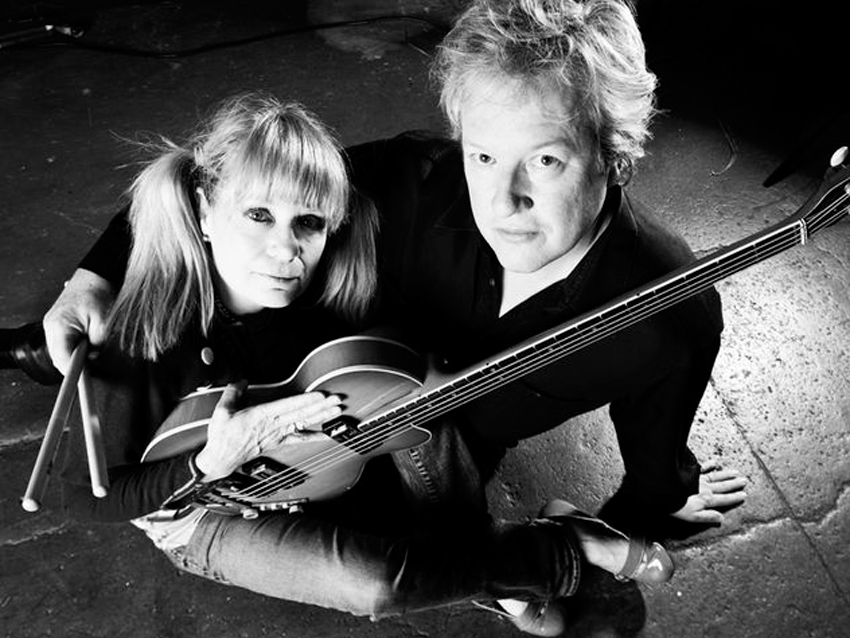
Chris Frantz and Tina Weymouth: the 11 greatest punk rock bands of all time
On the crunchy and infectious title track of their recent EP, Downtown Rockers, Tom Tom Club's Chris Frantz and Tina Weymouth give it up for their lower Manhattan '70s contemporaries, name-dropping such seminal artists as Richard Hell, Patti Smith, Television and Blondie, among others. "There were so many great people playing CBGBs when we were just starting out as Talking Heads," Frantz says. "We weren’t able to fit everybody into the song. That's pretty difficult in the space of three minutes."
As was the case with Talking Heads, the terms punk, art-rock, garage rock and new wave were liberally and interchangeably applied to many of the acts Frantz and Weymouth rubbed shoulders with. "The New York press kind of did the same thing as the London press," Weymouth says. "They wanted to compress everything into one style, one name. But it wasn’t like that at all. There was a huge variety of bands, and the audiences were happy to have that variety."
As for the word "punk" itself, Frantz doesn't recall there being a clear delineation as to who fit under the umbrella term at the time. “The name wasn't used amongst the bands," he says. "It wasn’t until Punk magazine came out that the word started being thrown around, and then there was a bit of labeling going around – this band’s punk, that band isn’t.’"
With the passage of time, Frantz and Weymouth have no such problems acknowledging bands as truly punk-worthy - "It's attitude, it's fashion and it's the music," says Weymouth - and on the following pages, the husband-and-wife rhythm section name the the genre's 11 greatest ever (in alphabetical order).
"All of these bands have such unique distinguishing qualities," says Frantz. "But they have one thing in common: they were memorable.”
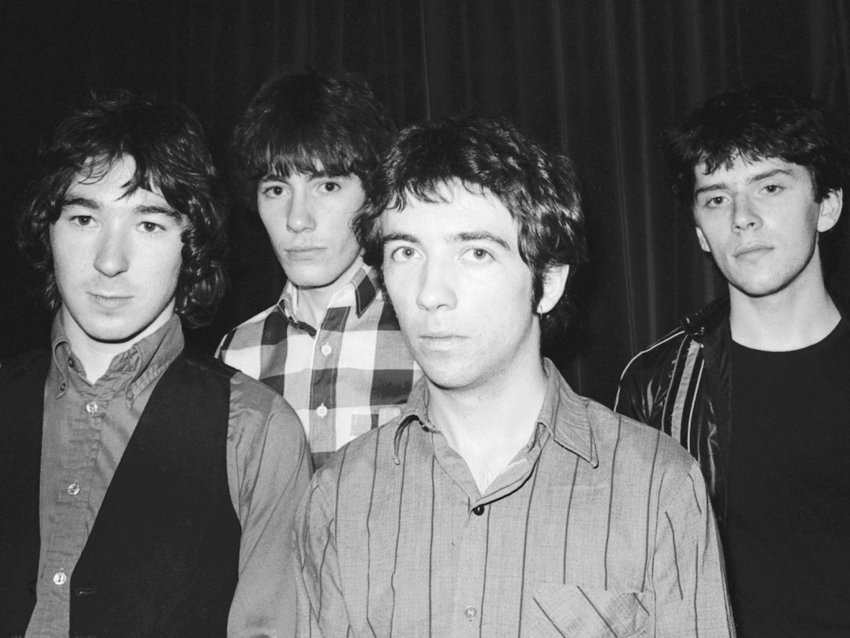
The Buzzcocks
Frantz: “They were from Manchester, England, so they weren’t from that pool of London bands. They were up in the hinterlands. They wrote a song called Ever Fallen In Love, which was not typical of punk music at the time because it had the word ‘love’ in it. But there it was.
“They were all very tiny people, quite small men. They’re still out there today doing it. I saw them just over a year ago at Toad’s Place in New England. They’re still really punk, and they’re still small.” [Laughs]
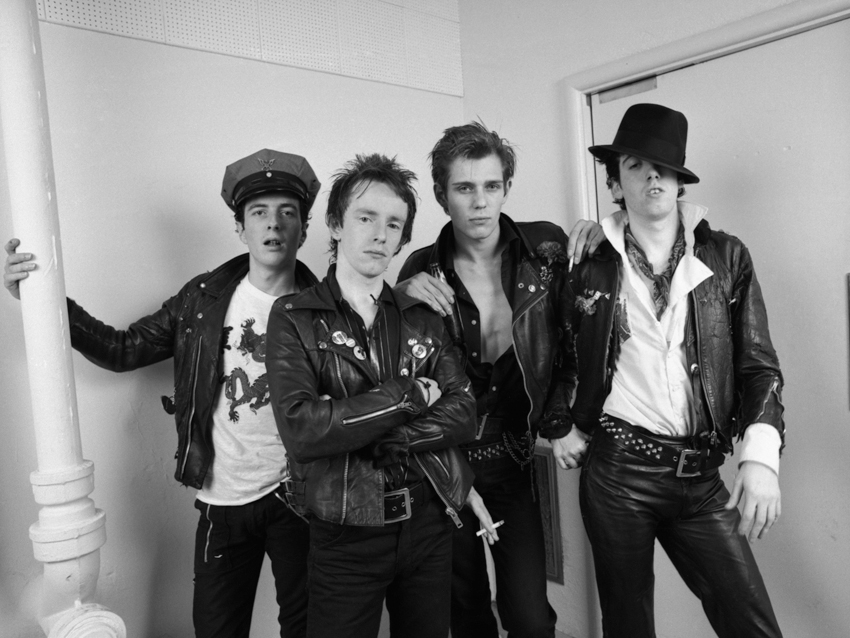
The Clash
Frantz: “The Clash were pretty badass. One of the things they were great at was punk imagery. It seemed as if they never left their apartments – or their ‘flats,’ as they would say – without a photographer. They were always dressed in either paramilitary, Western or gangster outfits. They had the whole look thing down.
“And, of course, they had great songs. I would choose White Riot, from their first album, as a standout. It was about the famous incident at the Notting Hill Carnival, where a bunch of teenagers and Caribbean people rioted during the big street festival. The Clash, of course, were jealous – they wanted to riot, too.”
Weymouth: “I like the Clash more now than I did originally. I saw them play live, and I didn’t think they were very good. I thought they were more about their image and their outfits. It seemed a bit silly to make the music about fashion.
“Now I appreciate fashion in ways I never did before, and I recognize how wonderful it is. So I don’t think The Clash are silly anymore; in fact, I’ve always been incredibly sorry that they broke up and that Joe Strummer couldn’t get it back on track. I’m sorry that Mick Jones had his heart broken, and I’m sorry for Topper.
“But I’m glad that Joe, before he died, knew that he was going to be inducted into the Rock And Roll Hall Of Fame. For him, that meant something pretty incredible.”
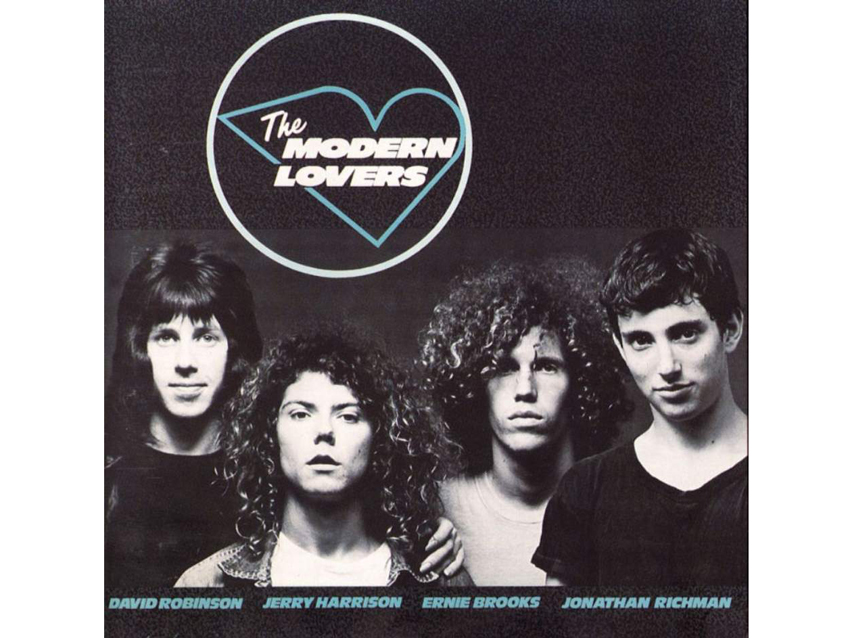
The Modern Lovers
Weymouth: “What a fantastic band! They were amazing in so many ways. I’m so sorry that Jonathan Richman didn’t stick with it. But I’m glad for us, because we got to work with Jerry Harrison, who was in the Modern Lovers before he went to the Talking Heads.
“During the making of their first album, the one produced by John Cale that was really supposed to be a demo for Warner Brothers, Jonathan was freaking out, and not in a good way. Jerry ended up playing a lot of the guitar parts. He's always been so talented.”
Frantz: “Having worked very closely with Jerry Harrison over many years, I happen to know that The Modern Lovers were really into The Stooges. People always think, Oh, The Modern Lovers, they were into The Velvet Underground, which they were, but they were equally excited by the prototypical punk rock of The Stooges.
“What they liked about The Stooges was their sense of rhythm. If you listen to Stooges songs like No Fun and 1969, there’s almost a Bo Diddley thing going on there, a syncopation. It’s not about everything being right on the beat; there’s a lot of cross-rhythms. I know that The Modern Lovers were very interested in all of this. They were the quiet side of punk, but they could certainly be aggressive
“Their song Roadrunner is a classic. Being that I’m in New England, I often start off my radio show with it. There’s no truer a song about riding around New England in your car than Roadrunner.”
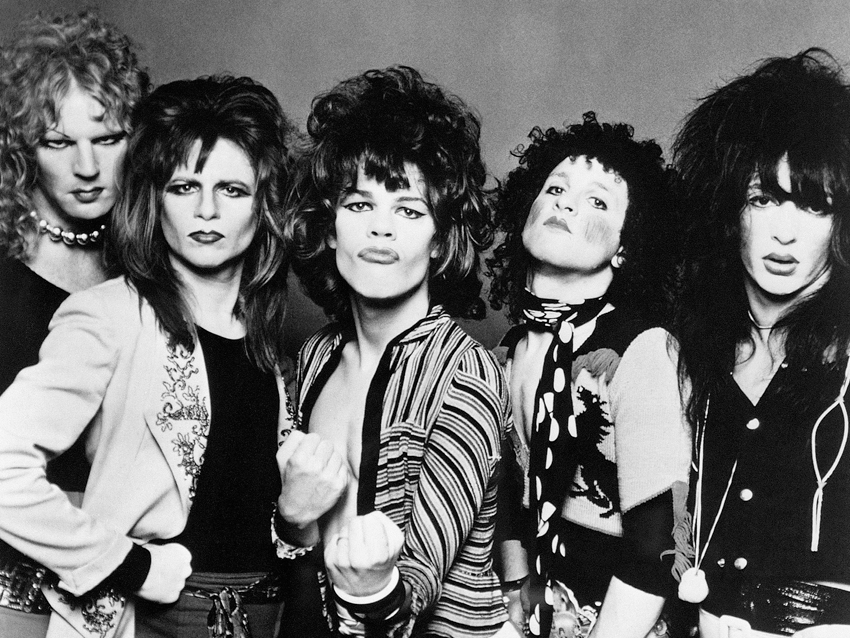
The New York Dolls
Frantz: “Even though the Dolls were on the tail end of glam, they were at the beginning of what was happening when young musicians were looking for something new and audacious – and they certainly were audacious.
“They had the good fortune to have David Johansen as their frontman. He had such irreverence and a pretty keen intelligence, as well. The Dolls played stupid, but I always thought, at least in the case of David, that it was all an act. He was even doing things that presaged what would become commonplace in the future.”
Weymouth: “I love The New York Dolls. David Johansen was always so amazingly on-point, and he’s still that way. The band was very important to us; in fact, they’re very much responsible for us wanting to move to New York. We heard the Dolls and thought, Wow, there’s something happening there. New York is where we need to be. And that was the case.”
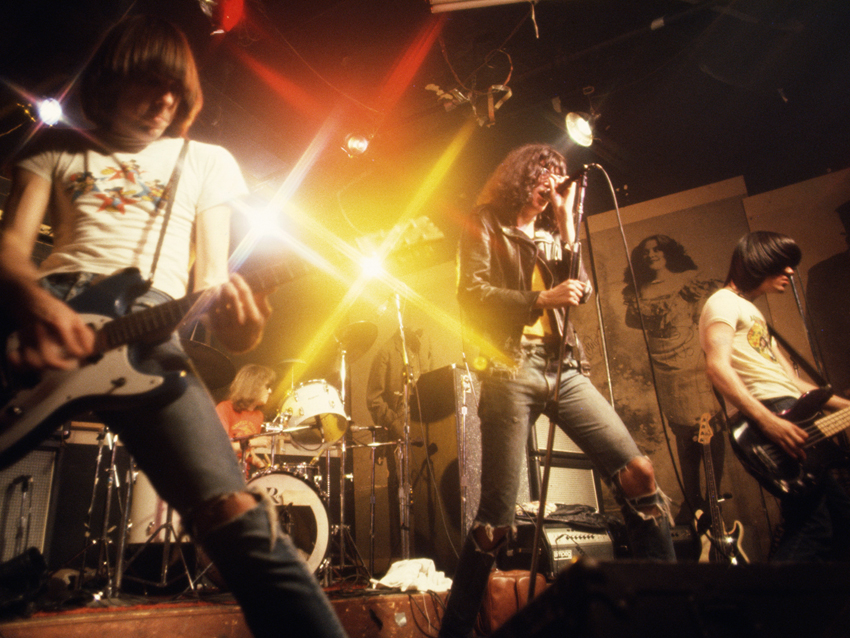
Ramones
Frantz: “If I had to put all of these bands in order of their musical impact on me, I’d put the Ramones at number one. They were the first band that we ever played with as Talking Heads. When we did our audition at CBGBs, Hilly Kristal put us on before the Ramones. There were maybe 20 people in the audience – 10 were our friends, and 10 were the Ramones’ friends. It was quite a night.
“To me, they’re the ultimate when it comes to punk music. They had marvelous pop music melodies and, of course, those driving power chords. The drums were just perfect every time. And Joey, despite the intense volume that was around him, always managed to hit the notes. He was a very good singer. I always thought that was pretty bremarkable.”
Weymouth: “In terms of lyrics, they're right up there with Kraftwerk. Emil Schult wrote most of the lyrics for Kraftwerk, and Dee Dee Ramone wrote 99.9 percent of the lyrics for the Ramones. He was brilliant. I wish I could be as direct as he was. I’m much more introspective. Dee Dee was a remarkably prolific songwriter. And Joey, you know, he wasn’t bad himself.”
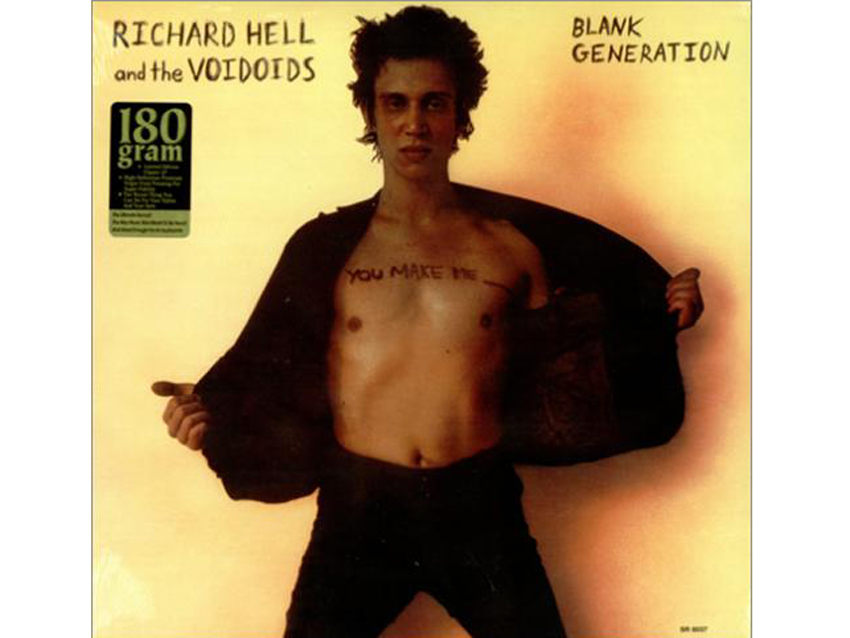
Richard Hell And The Voidoids
Weymouth: “Richard Hell is one of my heroes. He’s the erudite punk. I think he was Rimbaud to Tom Verlaine’s Verlaine, although Richard Lloyd was my favorite guitarist. Still, Richard Hell is incomparable. The iconographic imagery that he conveyed was startling.
“He made the Voidoids cook. He had that thing about him that stirred the senses. And no matter what anybody says to the contrary, he was a wonderful bass player. To me, he’s a legend.”
Frantz: “The song that made Richard truly punk was one that just cut a wide swath in the whole downtown music scene. It was called Blank Generation. I actually first saw him do that song with Television, and it was just as punk with them as it was with the Voidoids.
“Between Television and the Voidoids, Richard was in the Heartbreakers with Johnny Thunders, Jerry Nolan and Walter Lure, and they also did the song. It was different each time, but it was always the cool kind of ultimate punk song. Richard would never acknowledge this, but I understand that he copped the chorus from a Rod McKuen poem called The Beat Generation.”
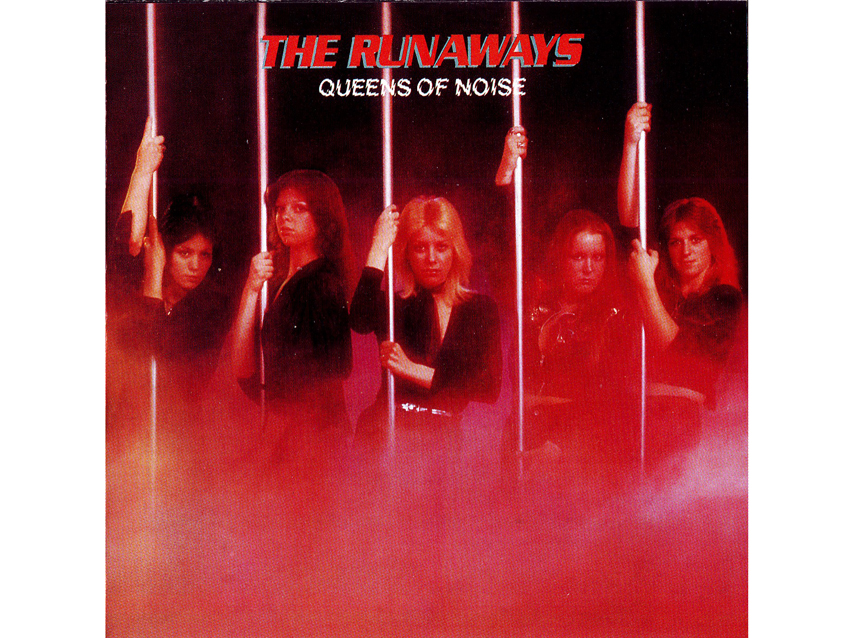
The Runaways
Weymouth: “They were 16-year-old kids who wrote their own songs and put together their own thing. Kim Foley was a wonderful manager. He was kind of their Malcolm McLaren. He took a lot of the credit, but he didn’t put them together – they put themselves together.
“They were a really cool bunch of girls. They got into the same trouble as the Sex Pistols with drugs and fame coming too fast. Even though I admire The Sex Pistols, I always wonder why they got so much acclaim and The Runaways were overlooked. Some people might say they weren’t punk, but they played CBGBs in 1975, the same year it was all happening. That’s punk.
“People don’t realize how difficult it was for The Runaways to do what they did. Just to be a girl and go into a guitar store can be hard. To this day, I’ll go into a music store to buy some cords, and the people will say to Chris, ‘Does she know what she’s doing?’
“They were incredibly brave. To be saying ‘I’m your cherry bomb’ at a time when virginity was still a very big deal with people, that took some guts. The Runaways were quite important.”

Sex Pistols
Frantz: “They only made one record, but it was a pretty good record. Their imprint was huge. I know we got rather annoyed at them, because we were on the same record label, and there we were, touring the world and playing, playing, playing. Meanwhile, the Sex Pistols did one little tour of America and got more press in a week than we did in an entire year. And then they broke up! [Laughs]
Weymouth: “It’s too bad that their music – the guitars and drums – was so typical, because I think that the lyrics were smashing. And the fashions were smashing, too. I don’t go back and listen to the record, but I always like it when the music comes on the radio and takes me by surprise.
“Johnny Rotten is still a contender. Glen Matlock, who left the group, he was a cool cat, too. They’re all deserving.”
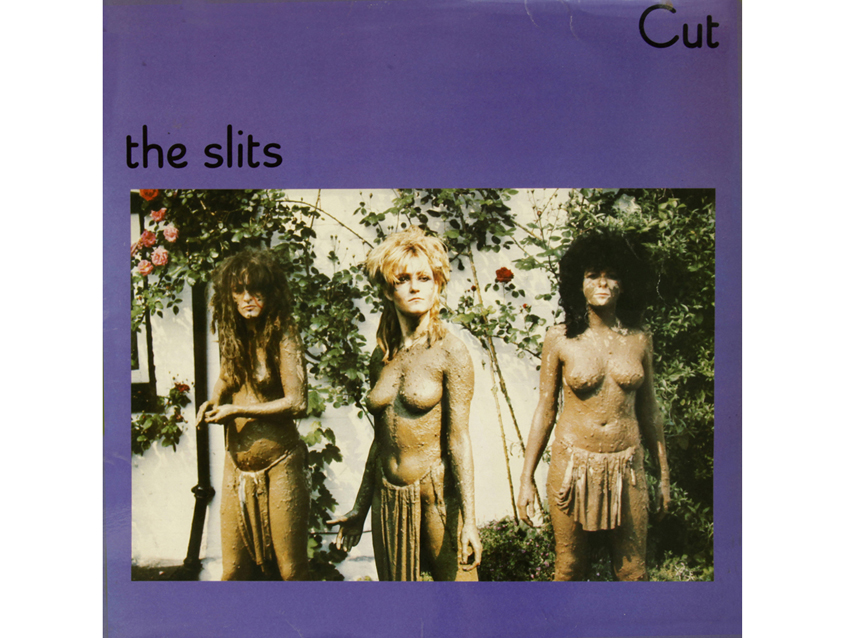
The Slits
Frantz: “It was our first tour ever, and we were on the road in England with the Ramones. We had one day off, and we chose to go to a concert in Brighton. It was The Clash, The Jam and The Slits. I think it was the White Riot tour.
“After the show, we were ushered back to the dressing room. The Clash were completely rude to us; they didn’t know who we were. The Jam didn’t even come to the dressing room; they left on their bus or something. But The Slits were so nice. Evidently, somebody told them who we were. They were absolutely charming.
“I started listening to their records from time to time. Our friend, Neneh Cherry, who lived upstairs from us in Long Island City, was good friends with The Slits. There's a great picture of them where they’re all covered in mud. It’s kind of archetypal. They weren’t particularly adept at their instruments at the time, but they had the attitude.”
Weymouth: “They were as adept as any of the boys were – that’s the incredible thing. The drumming might not have been pleasing to you, Chris, but I think they got very good. They didn’t give up.”
Frantz: “No, they didn't. In fact, Tina just played on Viv Albertine’s new album. It’s called The Vermillion Border.”
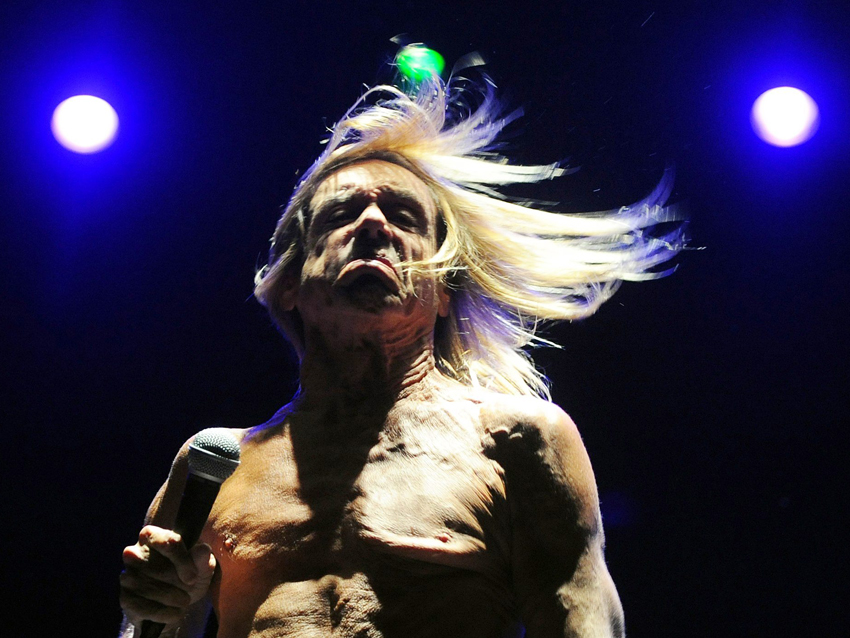
The Stooges
Frantz: “Truly a badass group of guys. They were pretty fearless. I think they were on the frontier, and not just because they lived in Michigan. I mean musically speaking, they were frontiersmen. Nobody was doing what they were doing back then.
“There were some of those Lenny Kaye garage rock bands that were pretty audacious and badass, but The Stooges, particularly with Iggy, turned the mother out.”
Weymouth: “I love The Stooges not just for their rhythm but for their great sense of arrangements. The lyrics to their songs are absolutely unforgettable. Very sharp songwriting.”
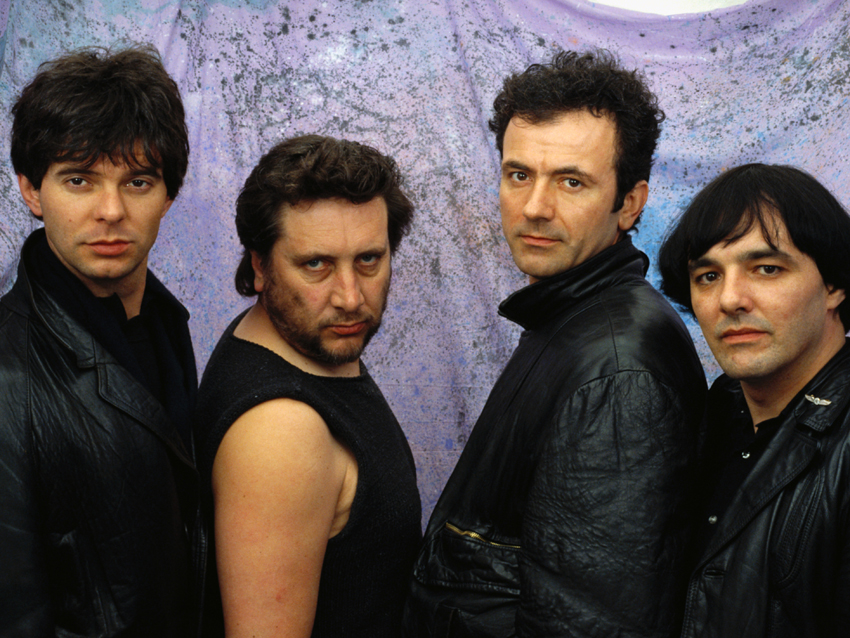
The Stranglers
Frantz: “They didn’t get a lot of acclaim in America, but they were huge in England and Europe; in fact, they were bigger than a lot of the other bands. They had songs that even got played on the radio, which was pretty amazing for punk bands at the time.
“They had this guy in the band, Jean-Jacques, and he drove the girls crazy because they all thought he was so sexy. He was very good looking, I admit. I remember he even posed nude on the cover of NME, so there you go [laughs]. They had this one song called Peaches that I liked a lot. It’s got the line ‘Walking on the beaches, looking at the peaches.’” [Laughs]
Weymouth: “I never got to know them at all, but we did play some shows with them. They were real crowd-pleasers in terms of a headlining band with lots of punk power.”
Joe is a freelance journalist who has, over the past few decades, interviewed hundreds of guitarists for Guitar World, Guitar Player, MusicRadar and Classic Rock. He is also a former editor of Guitar World, contributing writer for Guitar Aficionado and VP of A&R for Island Records. He’s an enthusiastic guitarist, but he’s nowhere near the likes of the people he interviews. Surprisingly, his skills are more suited to the drums. If you need a drummer for your Beatles tribute band, look him up.
